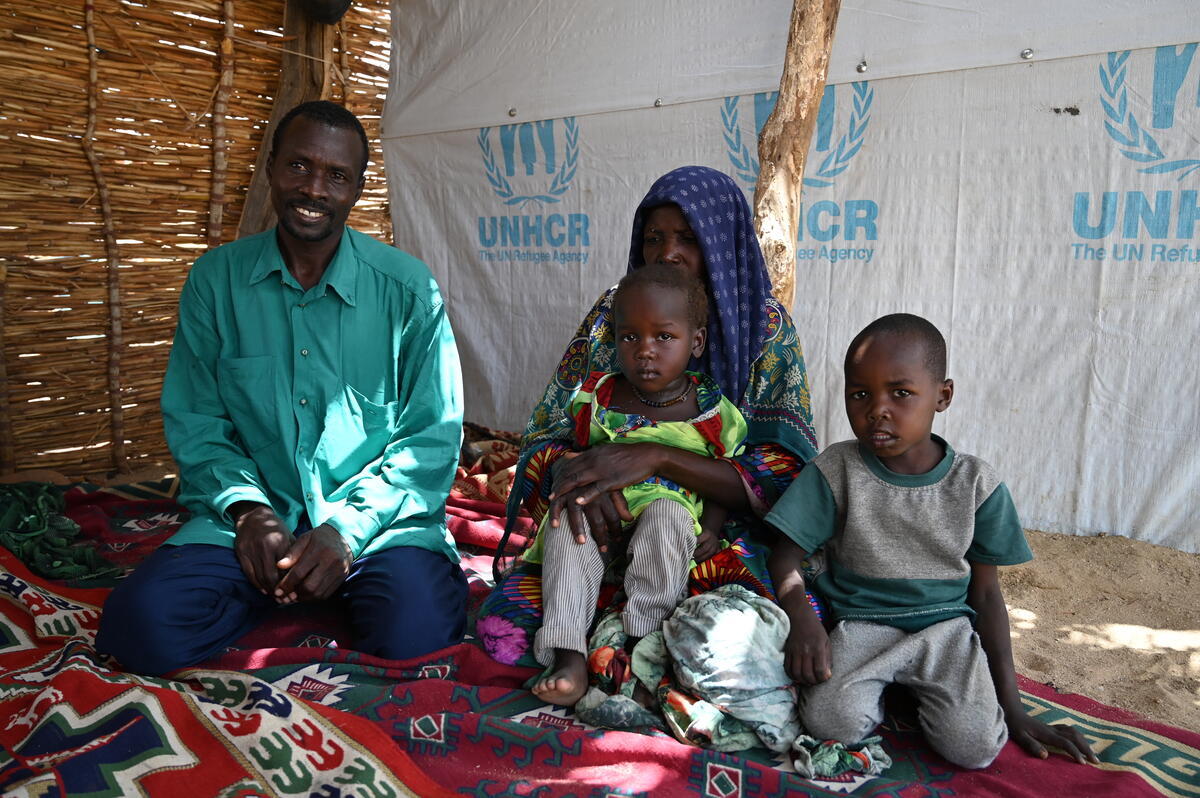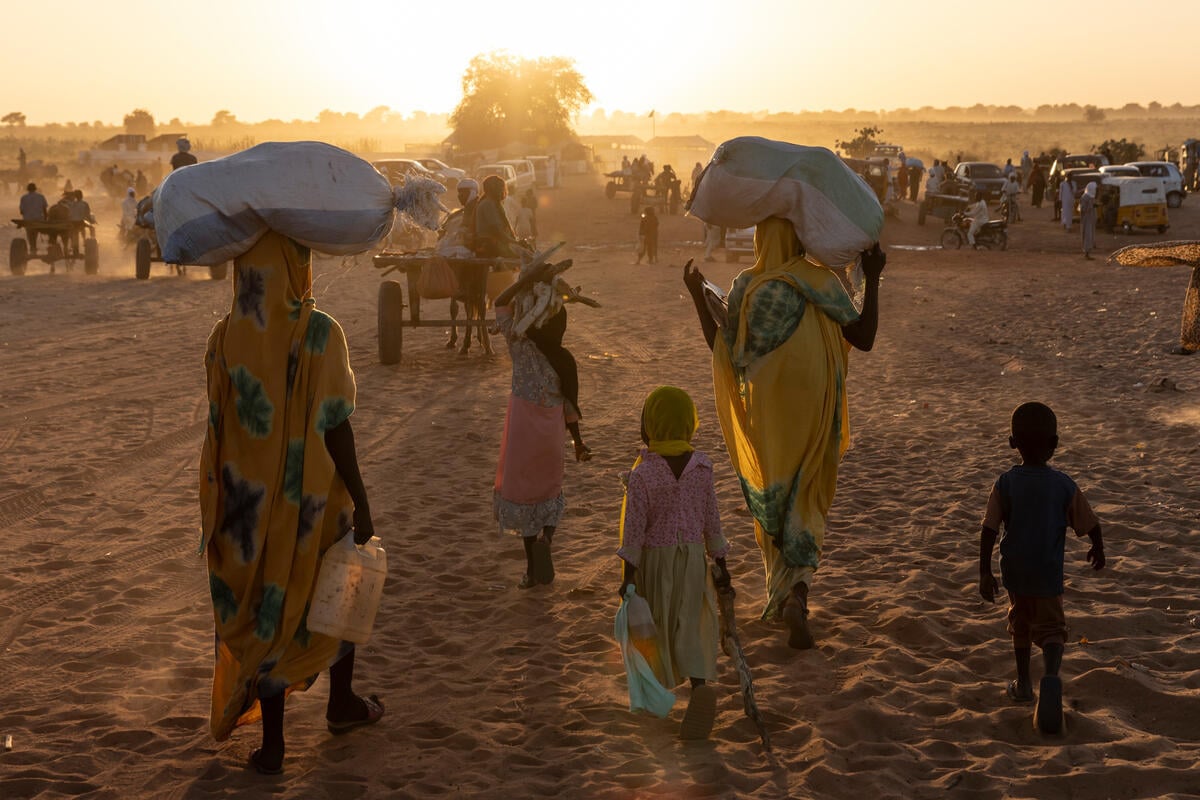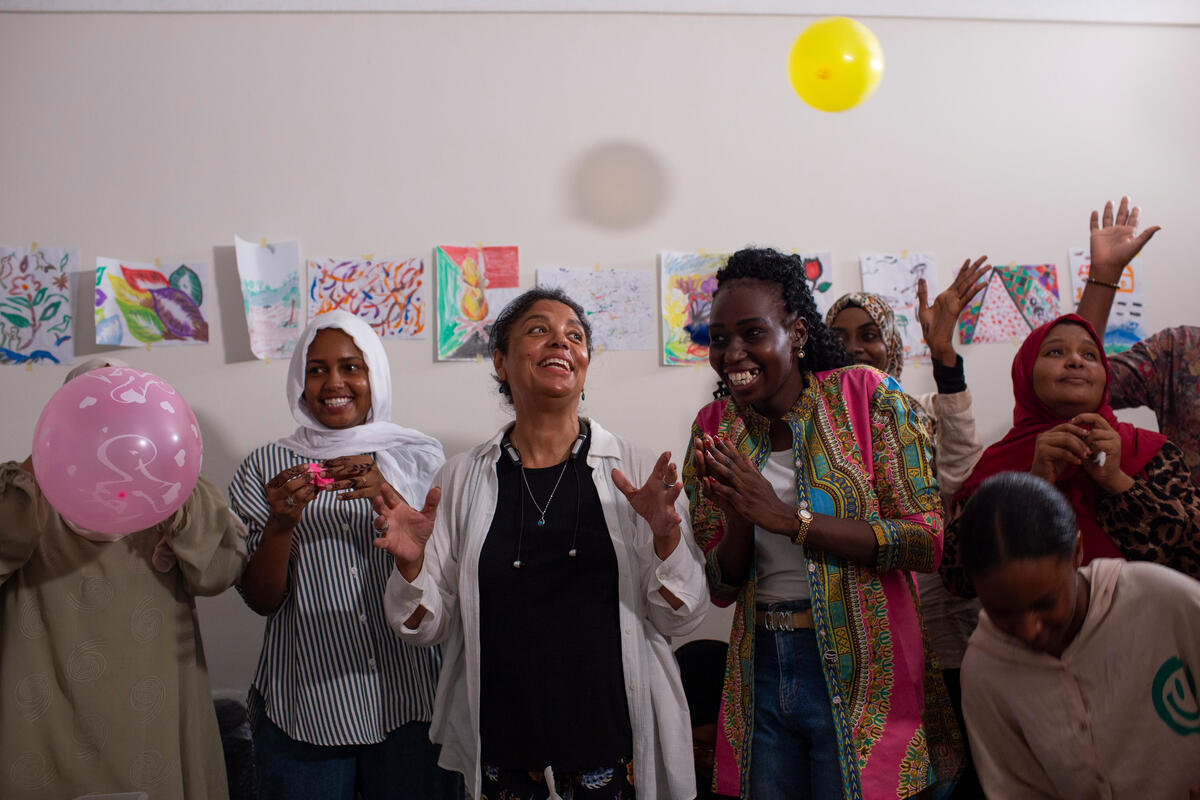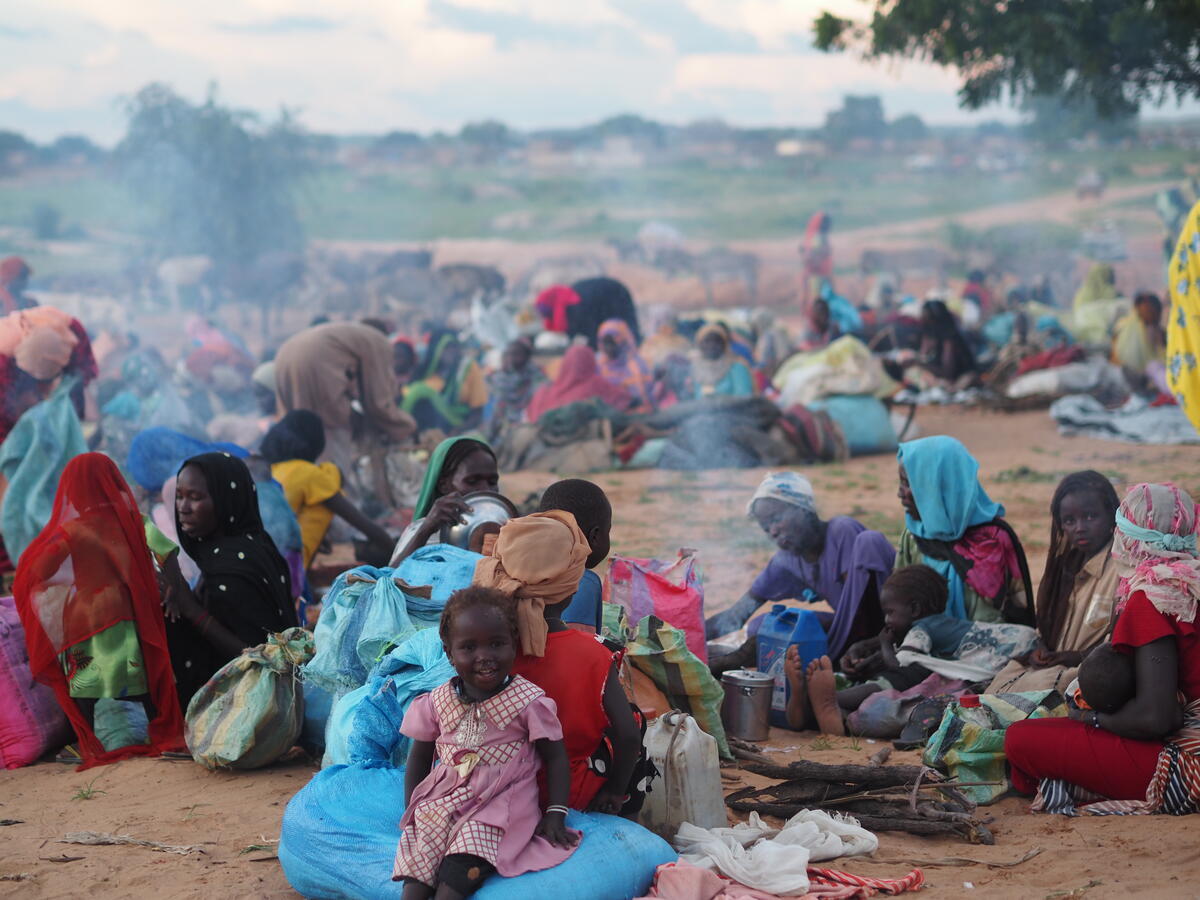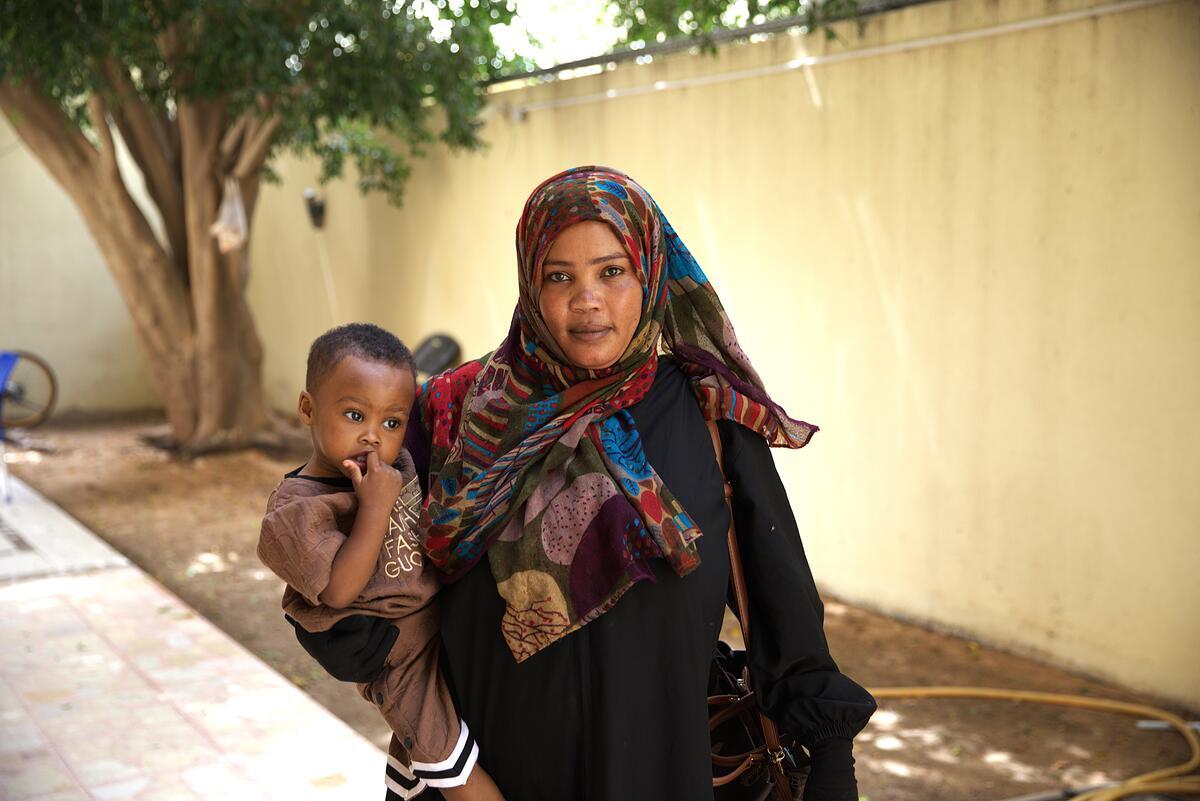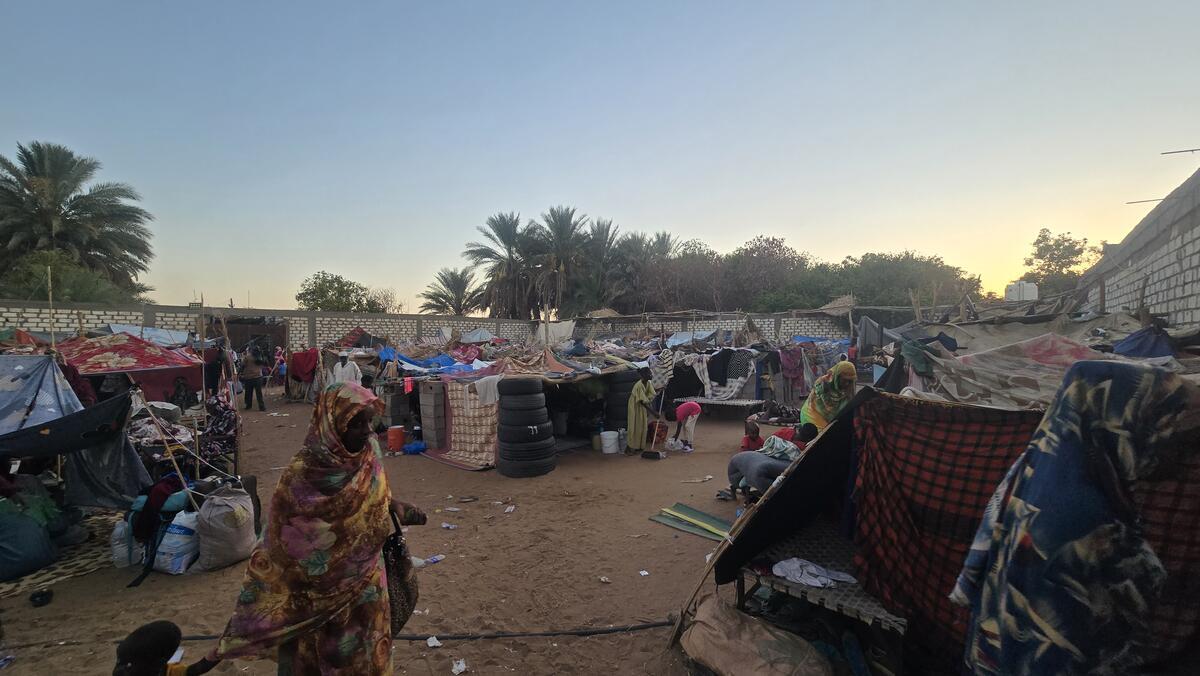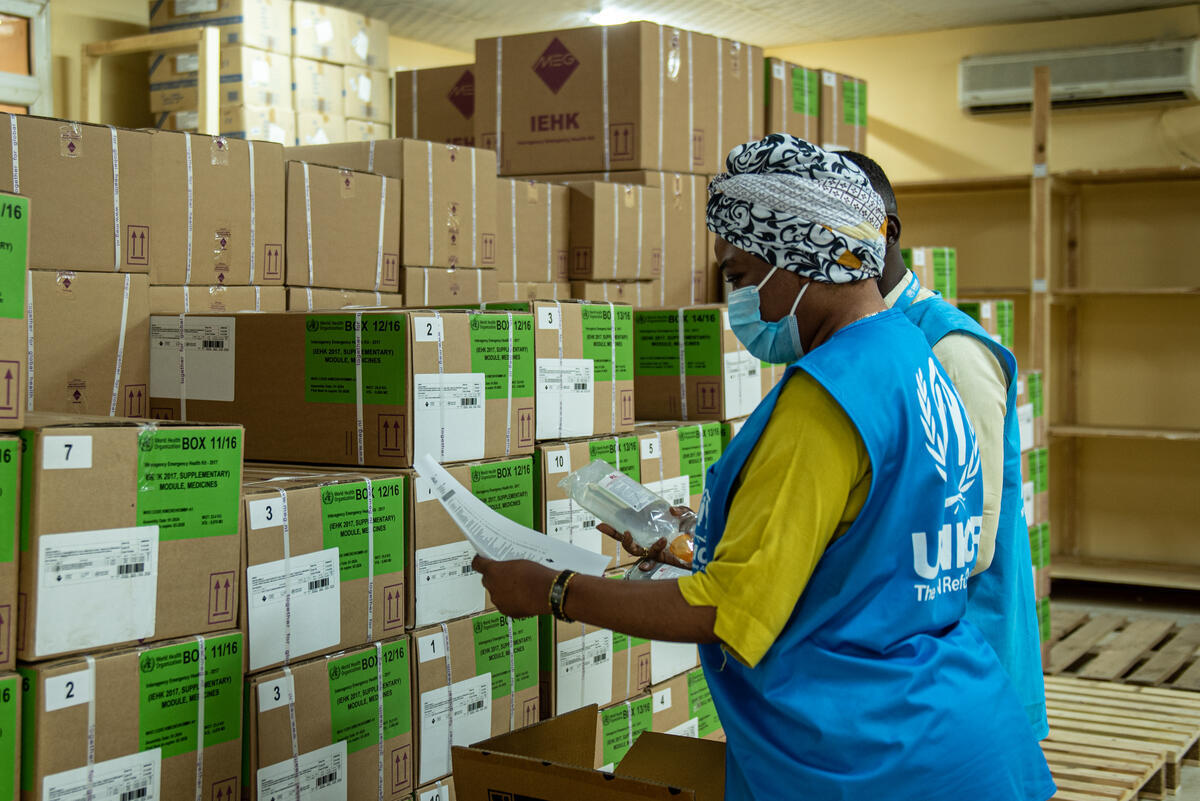UNHCR welcomes release of more Sudanese in Egypt
UNHCR welcomes release of more Sudanese in Egypt
Cairo, Thursday 19 January 2006
A total of 233 people, including 176 Sudanese women and children and 57 Darfurians have been released from three prisons in Cairo. The Sudanese were released Wednesday night and were part of a group of more than 2,000 people who were removed from a Cairo square near UNHCR's office on 30 December following a three-month demonstration.
"We are extremely relieved that this group has been released and an additional group of 39 - women, children and UNHCR card holders - will also be released today," said Mr. Radhouane Nouicer, UNHCR's Geneva-based deputy director for the region, on mission in Cairo. "We are grateful to the Egyptian authorities for this humane gesture."
Most of the demonstrators initially detained were released within a few days of the incident. But more than 600 were still being held on 5 January, when UNHCR was given access to the Sudanese in three Cairo prisons to assess their legal status and their need for international protection. The agency consequently recommended the release of all detainees, about two-thirds of whom are registered with UNHCR or are women and children or who have fled Sudan's strife-torn Darfur region.
For the 183 Sudanese still being held, the refugee agency has asked for more time to do proper legal status determination.
"We will now continue to assess the status of the 183 Sudanese remaining in prison through a proper, in-depth legal assessment to ensure whether these people are of concern to UNHCR," said Nouicer.
The government of Egypt has given UNHCR until January 26 to continue its legal assessments. UNHCR is hopeful that no deportations will take place for this group.
Meanwhile, UNHCR Cairo has resumed the registration of asylum seekers and the renewal of identity cards, activities that had been seriously hampered by the sit-in. It will take some time before the backlog is cleared.
"We will work closely with the Egyptian authorities and continue to assist them in providing the best support for persons in need of protection," said Nouicer. "Burden sharing will be crucial, as well as much needed additional funding from donors."

